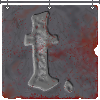The defensive spells in Alter Aeon can be divided up into seven broad categories:
- Spells that increase your armor class
- Spells that lessen incoming damage
- Spells that bolster your saving throws
- Spells that provide protective minions to take the hits meant for you
- Spells that help you run away from danger
- Spells that protect places from intrusion or surprise attacks
- Corner case defensive spells
Armor Buffing Spells
The most obvious way to defend your character is to make him or her harder to
hit. There are a handful of armor buffing spells that almost every character eventually
learns. These are:
'Armor' increases your armor class by 20 points and may be maintained. 'Shield' increases your armor class by 30 points. 'Displacement' increases your armor class by 40 points. Taken together these three spells add 90 to the armor class of any character.
The necromancer 'bone shield' spell grants save bonuses (more about this later) but also increases the necromancer’s hp and armor class. 'Bone armor' does the same thing on a grander scale.
As important as armor buffing spells are, they pale in comparison with damage absorbing spells.
'Armor' increases your armor class by 20 points and may be maintained. 'Shield' increases your armor class by 30 points. 'Displacement' increases your armor class by 40 points. Taken together these three spells add 90 to the armor class of any character.
The necromancer 'bone shield' spell grants save bonuses (more about this later) but also increases the necromancer’s hp and armor class. 'Bone armor' does the same thing on a grander scale.
As important as armor buffing spells are, they pale in comparison with damage absorbing spells.
Damage Absorbing Spells
These spells, as a class, lessen incoming damage. They are:
The most important of these is 'sanctuary'. At lower levels 'sanctuary' merely decreases the amount of damage a character takes. At levels past level 30 cleric, the 'sanctuary' spell halves incoming damage.
'Faith shield' acts before 'sanctuary' is calculated. It reduces damage by roughly half the cleric’s level reducing damage by a random amount up to this value, but never less than 1d3 damage.
'Protection from evil' is a powerful spell against evil-aligned opponents. It reduces the damage they deal, and can often mean the difference between a deadly demolish and a annoying hit. The more evil your opponent is, the more effective this spell will be against him; however, damage can be stopped by more than mere damage reducing spells. Save bolstering spells also effect the combat effectiveness of your character.
The most important of these is 'sanctuary'. At lower levels 'sanctuary' merely decreases the amount of damage a character takes. At levels past level 30 cleric, the 'sanctuary' spell halves incoming damage.
'Faith shield' acts before 'sanctuary' is calculated. It reduces damage by roughly half the cleric’s level reducing damage by a random amount up to this value, but never less than 1d3 damage.
'Protection from evil' is a powerful spell against evil-aligned opponents. It reduces the damage they deal, and can often mean the difference between a deadly demolish and a annoying hit. The more evil your opponent is, the more effective this spell will be against him; however, damage can be stopped by more than mere damage reducing spells. Save bolstering spells also effect the combat effectiveness of your character.
Save Bolstering Spells
The saving throw bolstering spells work to increase a character’s natural resistances to the main attack types
governed by saving throws:
For more information about saving throws and how they work, read our Saving Throws and Resistances articles.
The save bolstering spells are as follows:
The three mage elemental shields (often called eles or some variation thereof) protect from a specific element: 'fire shield' versus cold, 'ice shield' versus fire, and 'ground' versus zap. Note that the fire and ice shield spells are inverted, i.e. if you’re facing a fire breathing dragon, you want to cast 'ice shield'. Each elemental shield grants a percentage resistance against the element type, and this percentage increases with caster level.
Similarly, the clerical 'slow poison' spell does the same for poisons. 'Still air' does the same for breath weapons. 'Windbreaker' reduces the power of all breath attacks in the target room, regardless of their source. 'Bless', in addition to its primary purpose of adding hitroll to its recipient, also grants a modicum of spell save to its bearers. This is typically 5 to 10%, but it helps to round out spell save sets.
'Crystal shield', as well as the bone armoring spells of necromancers, give some resistance to breath attacks. 'Crystal shield' gives some resistance as well against elemental attacks, and can be used to increase this bonus by casting 'crystal shield' with the fire, ice, or zap descripters. 'Bone shield' and 'bone armor', in addition to their ac and hp bonuses, grant save bonuses against breath and poison attacks.
'Crystal coat' increases a person’s normsave in addition to providing a modicum of elemental resistance. This norm save increase is typically 10 to 15%. Normsave is the save checked to reduce incoming damage. 'Barkskin' and 'stoneskin' also provide up to 10% normsave, in addition to the special damage reduction each provides. 'Barkskin' provides extra protection against slashing and piercing weapons, and 'stoneskin' provides extra protection against whips and flails. However, useful as save bolstering spells are, it’s sometimes better to avoid an attack entirely.
- Spells
- Fire
- Cold
- Zap
- Poison
- Breath
- Normal
For more information about saving throws and how they work, read our Saving Throws and Resistances articles.
The save bolstering spells are as follows:
- Bless (cleric)
- Fire shield (mage)
- Ground (mage)
- Ice shield (mage)
- Still air (druid)
- Windbreaker (druid)
- Slow poison (cleric)
- Crystal shield (mage)
- Crystal coat (mage)
- Barkskin (druid)
- Stoneskin (druid)
- Bone shield (necromancer)
- Bone armor (necromancer)
The three mage elemental shields (often called eles or some variation thereof) protect from a specific element: 'fire shield' versus cold, 'ice shield' versus fire, and 'ground' versus zap. Note that the fire and ice shield spells are inverted, i.e. if you’re facing a fire breathing dragon, you want to cast 'ice shield'. Each elemental shield grants a percentage resistance against the element type, and this percentage increases with caster level.
Similarly, the clerical 'slow poison' spell does the same for poisons. 'Still air' does the same for breath weapons. 'Windbreaker' reduces the power of all breath attacks in the target room, regardless of their source. 'Bless', in addition to its primary purpose of adding hitroll to its recipient, also grants a modicum of spell save to its bearers. This is typically 5 to 10%, but it helps to round out spell save sets.
'Crystal shield', as well as the bone armoring spells of necromancers, give some resistance to breath attacks. 'Crystal shield' gives some resistance as well against elemental attacks, and can be used to increase this bonus by casting 'crystal shield' with the fire, ice, or zap descripters. 'Bone shield' and 'bone armor', in addition to their ac and hp bonuses, grant save bonuses against breath and poison attacks.
'Crystal coat' increases a person’s normsave in addition to providing a modicum of elemental resistance. This norm save increase is typically 10 to 15%. Normsave is the save checked to reduce incoming damage. 'Barkskin' and 'stoneskin' also provide up to 10% normsave, in addition to the special damage reduction each provides. 'Barkskin' provides extra protection against slashing and piercing weapons, and 'stoneskin' provides extra protection against whips and flails. However, useful as save bolstering spells are, it’s sometimes better to avoid an attack entirely.
Animation Spells
The easiest way to avoid getting attacked is to have someone else take the attack for you. This is the theory behind all
of the necromancer’s animation spell tree and many of the druid’s minions:
All of these spells create a mindless minion whose mission is to preserve its creator from all harm. The minion tanks for the creator, and protects them from incoming attack. The simplest spell in this tree, 'clay man', is easily learned by anyone who takes the first level of necromancer, and provides at least a few moments of respite from even the most dangerous enemies. While having a mindless punching bag soak your hits is good, escaping and not being there to be hit is sometimes even better.
- Clay man (necromancer)
- Earth wall (druid)
- Wood woad (necromancer)
- Bone guardian (necromancer)
- Water weird (druid)
- Flesh beast (necromancer)
- Shambling mound (druid)
- Metal construct (necromancer)
- Liveoak (druid)
- Ice elemental (mage)
All of these spells create a mindless minion whose mission is to preserve its creator from all harm. The minion tanks for the creator, and protects them from incoming attack. The simplest spell in this tree, 'clay man', is easily learned by anyone who takes the first level of necromancer, and provides at least a few moments of respite from even the most dangerous enemies. While having a mindless punching bag soak your hits is good, escaping and not being there to be hit is sometimes even better.
Run Away Spells
Sometimes it is the better part of valor to take Sir Robbin’s strategy from Monty Python and the Quest for the
Holy Grail: i.e. run away. There are a number of ways to do this:
The animation spells discussed above will, if the defender is taken completely out of combat, allow a character to walk away from a fight. This is the simplest strategy for escaping a fight. However, with multiple attackers or opponents that use area effect spells, it’s not always possible to use this strategy. For these times one of the other spells in this section are better.
Mages have three options to escape combat via magic. The first is to 'teleport' and hope that whatever random room you land in, it will not be as dangerous as the one you just exited. This is not a sound escape plan, but sometimes it’s the only one you have. 'Group teleport' does the same for your whole group, but it carries the same risks. The other means of escape for the mage, is to have another mage 'summon' your character out of danger (see One and Two Player Attack Strategies).
Clerics have a number of ways of saving themselves and others. First is 'word of recall', which when cast, will bring the cleric back to his recall. 'Group recall', a higher level version, does the same thing for an entire group. While it is annoying to walk back to a difficult-to-reach enemy, sometimes this strategy is the soundest. The last option is the spell 'prayer for the dying' which if it is successful will wisk a nearly dead combatant back to their recall and save them from almost certain death. However, prayer cannot be cast on oneself. Further, prayer is not always effective, and can be bypassed by sudden, massive, and annihilating death. So how do you protect yourself from sudden, massive, and annihilating death? Don’t get caught with your pajamas on.
- Animations (see previous section)
- Teleport (mage)
- Group teleport (mage)
- Summon (mage)
- Word of recall (cleric)
- Group recall (cleric)
- Prayer for the dying (cleric)
The animation spells discussed above will, if the defender is taken completely out of combat, allow a character to walk away from a fight. This is the simplest strategy for escaping a fight. However, with multiple attackers or opponents that use area effect spells, it’s not always possible to use this strategy. For these times one of the other spells in this section are better.
Mages have three options to escape combat via magic. The first is to 'teleport' and hope that whatever random room you land in, it will not be as dangerous as the one you just exited. This is not a sound escape plan, but sometimes it’s the only one you have. 'Group teleport' does the same for your whole group, but it carries the same risks. The other means of escape for the mage, is to have another mage 'summon' your character out of danger (see One and Two Player Attack Strategies).
Clerics have a number of ways of saving themselves and others. First is 'word of recall', which when cast, will bring the cleric back to his recall. 'Group recall', a higher level version, does the same thing for an entire group. While it is annoying to walk back to a difficult-to-reach enemy, sometimes this strategy is the soundest. The last option is the spell 'prayer for the dying' which if it is successful will wisk a nearly dead combatant back to their recall and save them from almost certain death. However, prayer cannot be cast on oneself. Further, prayer is not always effective, and can be bypassed by sudden, massive, and annihilating death. So how do you protect yourself from sudden, massive, and annihilating death? Don’t get caught with your pajamas on.
Location Defense Spells
At some point, every character has to let his guard down and sleep in the world of Alter Aeon. The following spells make
that a safer prospect:
These spells naturally break into three groups: alarm spells, spells that allow a fight to be broken off and possibly protect against enemy attacks, and spells that will keep enemies out and hurt them if they enter.
'Chimes' is a mage spell that creates hundreds of crystal chimes in a room. If a creature enters or leaves that room, it triggers a localized alarm, that can be heard up to one room away. 'Squeaky floors' does the same for druids, but the wailing of the floor is heard much farther away. The fly spell will bypass a 'squeaky floors' spell, but not a 'chimes' spell.
'Peace' and 'solace' perform similar functions. 'Peace' will stop all combatants in a room from engaging in combat for a few seconds. Aggressive enemies will immediately attack once again, and on going effects like poison clouds or area effect spells cast just before the peace spell will initiate combat again immediately. 'Solace', a much higher level spell, prevents creatures from attacking, and makes a room safe to sleep in for a time. The length of time and the level of the enemies effected vary with caster level.
The ward alignment spells prevent creatures of that alignment from easily entering the area. Mobs of that alignment, as well as players, will suffer minor hp, mana, and movement loss in the area. Over time, this effect can cripple a character or monster.
The 'bone fortress' spell creates a safe room around the necromancer and his party protecting them from roaming creatures and giving them a few ticks to regen in safety.
- Chimes (mage)
- Squeaky floors (druid)
- Peace (cleric)
- Solace (cleric)
- Ward evil (cleric)
- Ward good (cleric)
- Bone fortress (necromancer)
These spells naturally break into three groups: alarm spells, spells that allow a fight to be broken off and possibly protect against enemy attacks, and spells that will keep enemies out and hurt them if they enter.
'Chimes' is a mage spell that creates hundreds of crystal chimes in a room. If a creature enters or leaves that room, it triggers a localized alarm, that can be heard up to one room away. 'Squeaky floors' does the same for druids, but the wailing of the floor is heard much farther away. The fly spell will bypass a 'squeaky floors' spell, but not a 'chimes' spell.
'Peace' and 'solace' perform similar functions. 'Peace' will stop all combatants in a room from engaging in combat for a few seconds. Aggressive enemies will immediately attack once again, and on going effects like poison clouds or area effect spells cast just before the peace spell will initiate combat again immediately. 'Solace', a much higher level spell, prevents creatures from attacking, and makes a room safe to sleep in for a time. The length of time and the level of the enemies effected vary with caster level.
The ward alignment spells prevent creatures of that alignment from easily entering the area. Mobs of that alignment, as well as players, will suffer minor hp, mana, and movement loss in the area. Over time, this effect can cripple a character or monster.
The 'bone fortress' spell creates a safe room around the necromancer and his party protecting them from roaming creatures and giving them a few ticks to regen in safety.
Corner Cases
The following spells have specific uses or are of limited use except in corner cases:
As noted earlier, 'fly' will bypass 'squeaky floors'. It also avoids the effects of an 'earthquake' spell, and makes using the trip skill or the 'entangling roots' spell harder to land.
'Hold undead' will prevent undead from moving. This can allow a wounded character to escape to a nearby room.
'Curse ward' prevents curses from landing for a time, but degrades in effectiveness with every curse thrown against it.
'Presence' increases a target’s charisma. This allows a character to sometimes avoid attack from aggressive monsters, or delay attack long enough for a character to bypass the monster in question.
'Rancid flesh' protects against the worst fate of a character once he is dead, i.e. the dreaded eaten corpse. Scavengers will not eat a corpse effected by this spell. Further, this spell prevents the ability of some creatures to sniff out hidden characters.
As noted earlier, 'fly' will bypass 'squeaky floors'. It also avoids the effects of an 'earthquake' spell, and makes using the trip skill or the 'entangling roots' spell harder to land.
'Hold undead' will prevent undead from moving. This can allow a wounded character to escape to a nearby room.
'Curse ward' prevents curses from landing for a time, but degrades in effectiveness with every curse thrown against it.
'Presence' increases a target’s charisma. This allows a character to sometimes avoid attack from aggressive monsters, or delay attack long enough for a character to bypass the monster in question.
'Rancid flesh' protects against the worst fate of a character once he is dead, i.e. the dreaded eaten corpse. Scavengers will not eat a corpse effected by this spell. Further, this spell prevents the ability of some creatures to sniff out hidden characters.










